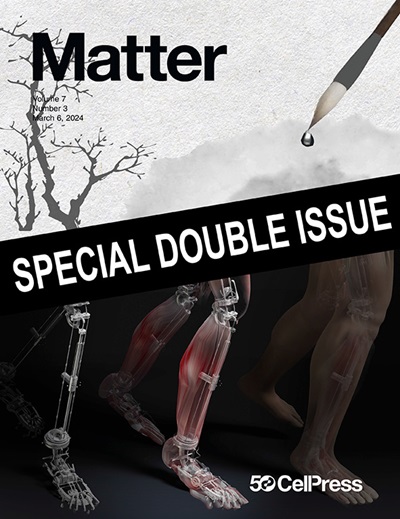El Agente: An autonomous agent for quantum chemistry
IF 17.5
1区 材料科学
Q1 MATERIALS SCIENCE, MULTIDISCIPLINARY
引用次数: 0
Abstract
Computational chemistry tools are widely used to study the behavior of chemical phenomena. Yet, the complexity of these tools can make them inaccessible to non-specialists and challenging even for experts. In this work, we introduce El Agente Q, an LLM-based multi-agent system that dynamically generates and executes quantum chemistry workflows from natural language user prompts. The system is built on a novel cognitive architecture featuring a hierarchical memory framework that enables flexible task decomposition, adaptive tool selection, post-analysis, and autonomous file handling and submission. El Agente Q is benchmarked on six university-level course exercises and two case studies, demonstrating robust problem-solving performance (averaging >87% task success) and adaptive error handling through in situ debugging. It also supports longer-term, multi-step task execution for more complex workflows, while maintaining transparency through detailed action trace logs. Together, these capabilities lay the foundation for increasingly autonomous and accessible quantum chemistry.

El agent:量子化学的自主代理
计算化学工具被广泛用于研究化学现象的行为。然而,这些工具的复杂性使非专业人员无法使用,甚至对专家来说也是一个挑战。在这项工作中,我们介绍了El Agente Q,这是一个基于llm的多智能体系统,可以根据自然语言用户提示动态生成和执行量子化学工作流。该系统建立在一种新颖的认知架构上,具有分层记忆框架,可实现灵活的任务分解、自适应工具选择、后期分析和自主文件处理和提交。El Agente Q在六个大学级别的课程练习和两个案例研究中进行了基准测试,展示了强大的问题解决性能(平均任务成功率为87%)和通过现场调试的自适应错误处理。它还支持更复杂工作流的长期、多步骤任务执行,同时通过详细的操作跟踪日志保持透明度。总之,这些能力为越来越自主和可接近的量子化学奠定了基础。
本文章由计算机程序翻译,如有差异,请以英文原文为准。
求助全文
约1分钟内获得全文
求助全文
来源期刊

Matter
MATERIALS SCIENCE, MULTIDISCIPLINARY-
CiteScore
26.30
自引率
2.60%
发文量
367
期刊介绍:
Matter, a monthly journal affiliated with Cell, spans the broad field of materials science from nano to macro levels,covering fundamentals to applications. Embracing groundbreaking technologies,it includes full-length research articles,reviews, perspectives,previews, opinions, personnel stories, and general editorial content.
Matter aims to be the primary resource for researchers in academia and industry, inspiring the next generation of materials scientists.
 求助内容:
求助内容: 应助结果提醒方式:
应助结果提醒方式:


